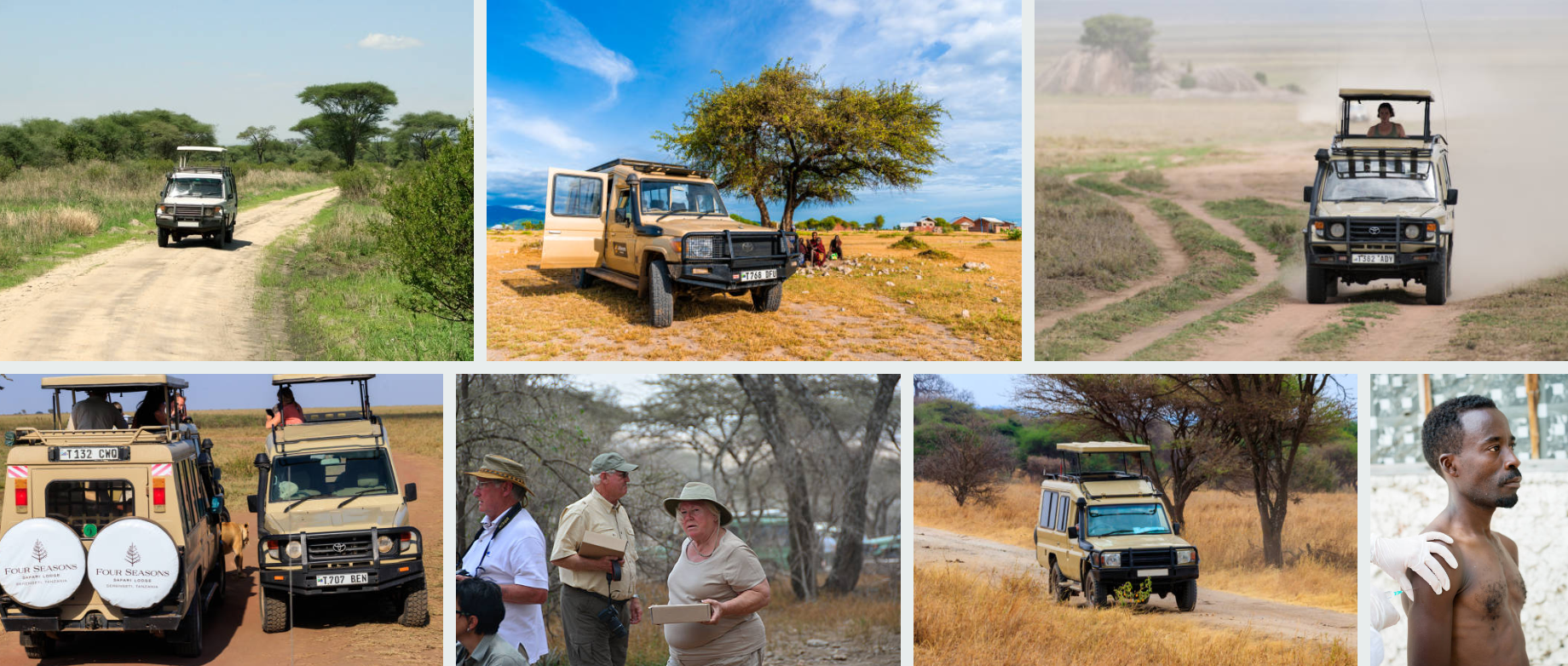What Vaccinations Are Required Before Going on a Tanzania Safari?
Tanzania Safari Vaccinations Required, Planning a safari in Tanzania is an exciting adventure, offering the chance to witness the Great Migration in the Serengeti, explore the Ngorongoro Crater, and relax on the pristine beaches of Zanzibar. However, before embarking on this journey, it’s crucial to ensure you are properly vaccinated to protect yourself from various diseases prevalent in the region. This guide covers all the essential vaccinations, health precautions, and travel tips to keep you safe during your Tanzanian safari.
Why Tanzania Safari Vaccinations Required
Tanzania is a tropical country with diverse ecosystems, from dense forests to vast savannas. While these landscapes are breathtaking, they also harbor diseases that may not be common in your home country. Vaccinations help prevent serious illnesses, some of which can be life-threatening. Additionally, some vaccines are mandatory for entry into Tanzania, while others are strongly recommended based on your itinerary and activities.
Mandatory Tanzania Safari Vaccinations Required
1. Yellow Fever Vaccine
Required? Yes, if arriving from a country with a risk of yellow fever transmission.
The yellow fever vaccine is one of the most critical immunizations for travelers to Tanzania. The Tanzanian government requires proof of vaccination (an International Certificate of Vaccination or Prophylaxis, ICVP) if you are arriving from or have transited through a yellow fever-endemic country. Even if not mandatory for your trip, getting vaccinated is highly recommended since yellow fever is a severe and potentially fatal disease transmitted by mosquitoes.
-
When to Get It: At least 10 days before travel.
-
Validity: Lifetime (as per WHO guidelines).
Highly Tanzania Safari Vaccinations Required
2. Hepatitis A
Recommended? Yes.
Hepatitis A is a viral infection spread through contaminated food and water. Since safari lodges and restaurants may have varying hygiene standards, this vaccine is essential for all travelers.
-
Dosage: Two doses (second dose 6-12 months after the first).
-
Protection Duration: At least 20 years (possibly lifelong).
3. Typhoid Fever
Recommended? Yes, especially if visiting rural areas or staying for extended periods.
Typhoid is another food and waterborne disease common in Tanzania. The vaccine is available in oral and injectable forms.
-
Oral Vaccine: Four capsules taken every other day.
-
Injectable Vaccine: Single dose.
-
Booster Needed: Every 2-3 years for injectable, every 5 years for oral.
4. Hepatitis B
Recommended? Yes, for long-term travelers, healthcare workers, or those engaging in activities with potential exposure to blood or bodily fluids.
Hepatitis B is transmitted through sexual contact, contaminated needles, or medical procedures. The vaccine is given in a series of three shots.
-
Schedule: 0, 1, and 6 months.
-
Lifelong Protection: After completing the series.

5. Rabies
Recommended? Yes, for travelers involved in outdoor activities or those who may encounter animals.
Rabies is present in Tanzania, and exposure can occur through bites or scratches from infected animals (such as monkeys or stray dogs). A pre-exposure rabies vaccine simplifies treatment if an exposure occurs.
-
Dosage: Three doses over 3-4 weeks.
-
Post-Exposure: Still requires urgent medical care, but pre-vaccination reduces the need for rabies immunoglobulin.
6. Meningococcal Meningitis
Recommended? Yes, during the dry season (December–June) or if visiting crowded areas.
Meningococcal meningitis is a serious bacterial infection spread through respiratory droplets. The vaccine is particularly important if traveling during peak seasons.
-
Vaccine Types: Quadrivalent (A, C, W, Y).
-
Booster: Every 5 years if at continued risk.
7. Cholera
Recommended? Only for high-risk travelers (e.g., aid workers in outbreak areas).
Cholera is rare among tourists but can be a concern in regions with poor sanitation. The oral cholera vaccine (Dukoral) may be considered.
-
Dosage: Two doses, 1-6 weeks apart.
8. Polio
Recommended? Yes, if not up-to-date on routine vaccinations.
While polio is nearly eradicated, some African countries still report cases. A booster may be advised if traveling to remote areas.
-
Booster: Single lifetime booster for adults.
9. Measles, Mumps, and Rubella (MMR)
Recommended? Yes, if not previously vaccinated or immune.
Measles outbreaks can occur in Tanzania, so ensuring immunity is important.
-
Dosage: Two doses in lifetime.
10. Tetanus, Diphtheria, and Pertussis (Tdap)
Recommended? Yes, if not up-to-date.
Tetanus can result from cuts or wounds, and diphtheria/pertussis are respiratory infections. A booster is recommended every 10 years.
Malaria Prevention (Not a Vaccine but Essential)
Malaria is a significant risk in Tanzania, transmitted through mosquito bites. Since there is no widely available malaria vaccine (though RTS,S/AS01 is in limited use), prophylaxis is key.
-
Antimalarial Medications: Options include doxycycline, atovaquone-proguanil (Malarone), or mefloquine.
-
Mosquito Avoidance: Use DEET repellent, sleep under mosquito nets, and wear long sleeves at dusk/dawn.
Other Health Precautions
1. Traveler’s Diarrhea Prevention
-
Drink bottled or purified water.
-
Avoid raw fruits/vegetables unless peeled.
-
Carry oral rehydration salts and antidiarrheal medication.
2. Altitude Sickness (if climbing Kilimanjaro)
-
Acclimatize properly.
-
Consider medications like acetazolamide.
3. COVID-19 Considerations
-
Check Tanzania’s latest entry requirements (some countries still require proof of vaccination or testing).
Where to Get Vaccinated?
Visit a travel health clinic at least 4-6 weeks before departure to ensure vaccines take full effect. Some immunizations require multiple doses over weeks or months.
Final Checklist Before Departure
✔ Yellow fever certificate (if required)
✔ Routine vaccines up-to-date (MMR, Tdap, polio)
✔ Hepatitis A & B
✔ Typhoid
✔ Rabies (if high-risk activities)
✔ Antimalarials
✔ First aid kit (including diarrhea medication, antiseptics)
Proper vaccination is a vital part of preparing for a Tanzania safari. By taking these health precautions, you can focus on enjoying the incredible wildlife, landscapes, and cultural experiences without unnecessary risks. Always consult a travel health specialist to tailor recommendations based on your medical history and itinerary.









